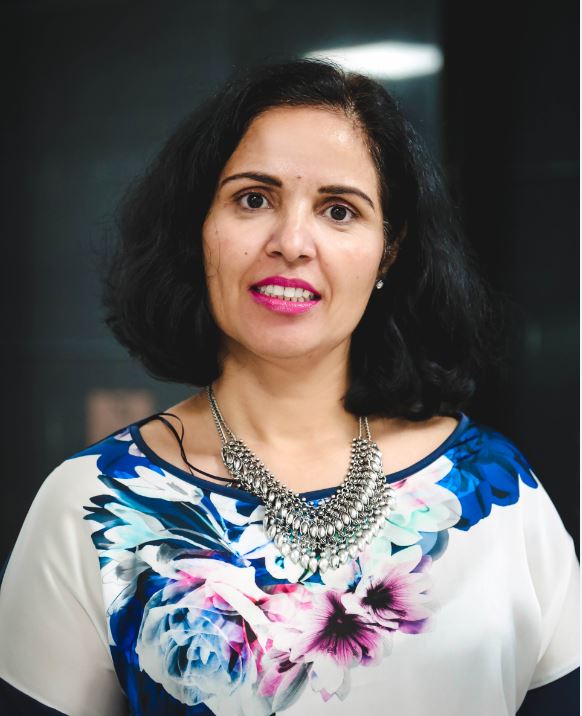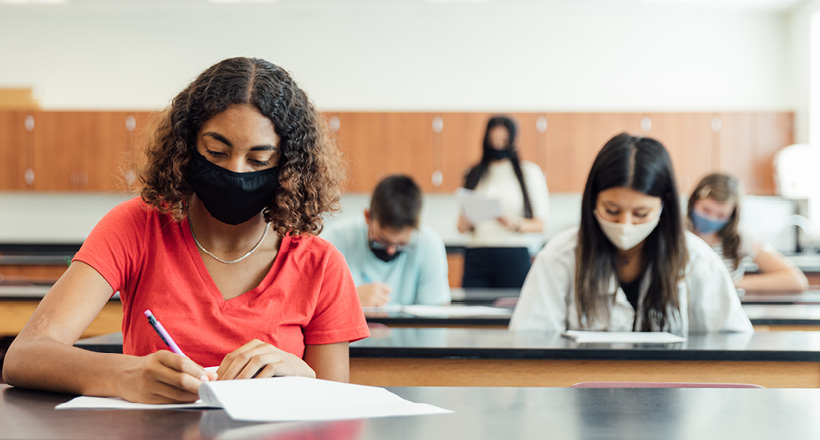Impact of COVID-19 pandemic on the Higher Education in Kazakhstan
Rethinking the Higher Education during the coronavirus
A sphere of higher education can be safely called one of the most affected spheres of the pandemic globally. Moreover, the field of higher education has become one of a few prepared areas that moved most of their processes online. Therefore, certain issues in the education process of Kazakhstan, that will have discussed below, have arisen from this dangerous disease as well.
A pandemic has affected all levels of education, including the bachelor`s, master's and doctoral degrees. All measures and activities that have been taken by the world community including the national governments, international organizations and associations, universities themselves in order to support the higher education system. A float will obviously have an effect that remains to be assessed. Today we can analyze what, how and by whom was done to the world of knowledge that has not changed dramatically and was able to gain a foothold in a global crisis.
Most universities are faced with the issues of organizing logistics and providing an educational process for foreign students staying during the lockdowns in the country of study or leaving home, and also the student and teacher exchange programs. The Universities focused on finding new forms of attracting foreign students and organizing for training them, revising the forms of work with foreign partners in the development and implementation of joint educational programs of the bachelor`s and master's level.
According to the research, 90% of all students in the world, about one and a half billion people, were deprived of the opportunity to attend the educational institutions due to the strict restrictions. Schools and universities had to switch over to distance learning and find the new teaching methods overnight. This situation is likely to have the long-term consequences.
A dramatic shift to the distance learning has highlighted its advantages as well disadvantages. How will this affect the quality of education process in general? How is the pestilence forcing us to rethink the higher education? In order to find out the answers for these questions and investigate this topic briefly, we have interviewed a Full Professor in the Graduate School of Education at Nazarbayev University, Ms. Naureen Durrani.

– A very good afternoon, Ms. Naureen! As you know, the COVID-19 epidemic, that forced more than a third of the world's population to stay at home, has caused unprecedented educational disruption. Due to that, educational institutions around the world, from preschool to universities, have had to close their doors, requiring educators to seek the alternative teaching methods. How was the reaction of Nazarbayev University to this?
– Like any other universities in the country, Nazarbayev University also had to take this transition very promptly. I will be speaking about the experiences of the Graduate School of Education, where I work. So, you know. My experiences are quite specific to the school that I am working. And, they were in a privileged position, in a sense that we already do some kind of offside and onside programmes. In fact, one of our major programmes which is the master`s program in Educational Leadership. It is done wire on the online and offside structure. So, our staff were not new to the distance education. However, it was very challenging for us as well. The first semester we constantly experimented, and we met regularly with our wise dean for academic affairs. He played actually an important role in supporting us and making this transition effectively. The staff, where we have had conversations with our students constantly getting feedback from them. So, the first term was quite hard, I was one of the tutors of the program at that time, and basically, what our student body is mostly at work. That`s why, we offer this program. So, we take them out of work, we have an agreement with the employer, so 5-6 weeks they are with us. We tutor them in intensive mode, that means we teach them the whole day. Then, they go, and they work online on their assignments. The hardest part for us was not managing the technology, but finding the time for the students, because now they are not here physically. They were required to teach, so basically the problem for us was that we were having classes, but not all students could attend, because the schools wanted to teach online. So, that was the biggest hurdle for us, which are a wise dean for academic affairs sorted out in the next term. So, rather than teaching them throughout the day, we started our classes from 3 to 7, when the school would be close anyway. Rather than, teaching them every day, we taught them on Mondays, Wednesdays and Fridays, and in between gave them work, so that they could cope with the demands. We had to make adjustments to that timelines, to the timetable to suit to the needs of our students. So, for us it wasn`t handling the technology that was challenging. Finding a time, where students could be participating the lessons, that was our biggest hurdle.
– As the proverb says, “Education is the most powerful weapon”, but inadequate access to the qualified education can lead to the failure. What do you think, regarding this proverb? How will the pandemic effect the quality of education?
– So, you know, I am more provided about, rather than the quality of education, because a quality teacher knows how to teach. And, the same principles apply, whether you are teaching at the physical classroom or whether you are teaching online. You need to know your subject matter; you need to know how to teach that subject matter, and you need to know that learning involves a communicative approach. You have to present your lesson in the interactive way to learners and make them engaged with the subject matter. So, now the minimum as changes, you are not physically present with your learners, but you have to keep in mind these principles. So, you have to reconfigure your curriculum in ways, where you can still give them opportunities to engage with learning, you can still see how they are engaging with the course materials, but you are not actually presenting the technology that supports that kind of thing, but you have to adapt your upload. So, for example, in our courses it is quite intensive for us managing this, so I give them pre-prepared lessons on the topic. I give them the learning materials and then, the next day we meet; we have time just to interact the technology enable back, I could brave my students and tend them to break out rooms without interruption they could engage with the materials. Before the class, I could them some questions to answer in a very individual way. So, I would just read their answers to check the extent to which they have engaged with the material and how much they have learned. So you have to change your approach, because it is not physically teaching in the classroom, but the principles remain the same. The technology enables that kind of interaction, but my biggest concern is equity, because this means students have the technology. All students have access to the acquired study space without interruption from family members. And, all students have the time to engage. As I said previously, we got 3 students` time from their work, but now the burden on them is enormous. They are still working in their school, they have not been freed up by the school, and yet they are in a way studying in a very intensive mode. Most of our students are women, they have children, they have family responsibilities. So, our male students can afford, and to leave their work and home in a quite spaced relevance, but our female students couldn`t. So this kind of inequities are quite, very sample for me, rather than the quality itself. As a good teacher, they would be good in physical classroom, and they would be good in online classrooms. I just wanted to say, it varies from subject to the subject and my work doesn`t require the students` work in a liberate way. I am not a doctor, I don`t need to take students to the hospital to see how we investigate the subjects, and how we take a medical history from the patients. There are subjects which will definitely be effective in terms of quality, because they are no longer in a position to offer students practical hands of opportunities for learning the subject matter and the skills relative to their subject.

– What have you been doing since the COVID-19 outbreak hit to assist all the instructors in moving to the online system, either on or off campus? Was it easy for the lecturers, educators or tutors to work outside the campus or the University classrooms?
– It was hard, Aliya. Actually, I lived in campus, and still I wasn`t allowed going to visit my office, and I have a laptop and had to work from this laptop. I use glasses in a way I put see struggling with my eye-side. Academic smooth often suffers from lower bad thing anyway, because their work requires them to set everything it has to be in a zoom meeting. It is not just about teaching, you know I am a researcher, I need to talk to colleagues for so many matters. I could just go to their office, and solve the problem out. Going to the office was good for my physical aid, I could just stand up and discuss what the issues, because everything has to be in zoom, because we are separated physically. So you know, definitely it has its disadvantages. I think many colleagues have back pain and neck pain. It has affected us physically, but you know what our employer did may be a matter of two weeks’ time or three weeks` time. It meant be in a position to bring staff back, but after a couple of months it was clear that the pandemic was not ending anytime soon. So, what our employer did was that they allowed to come back to our office when we need it. Currently, I have a deck stop, I have a printer and an office chair now. So, the live is much better and the same with the students. Students who needed it, especially digital devices that are distributed, because most of our resources are online anyway, but they still worked out as a process for delivering books physically. To an extent, an employer sorted out the mitigated problems.
– What do you see as the biggest challenges involved in online teaching? What are the big challenges that involves students, lecturers or other staff who deal with online learning?
– There are many issues, as I said good principles will mitigate, but the main is technology, because it is accessible to all things, especially the time and education to be delivered. It is not just means a digital device, but also connection, because all these important features of interactive lessons. They require good internet connection, and I am just sitting and talking to the students, because I cannot see their faces. I have no idea about the impact of my interaction with the students. Because, in the normal classrooms, teachers make judgements on the spot. They constantly monitor body language of the students and tend them on whether the students are comfortable, they are engaged or not. This kind of science can be absent, if internet is not stable. So, the students can just switch their cameras, making digital devices and an accessible wide web is crucial here. Nevertheless, if everything is still present, students feel very isolated. Education is not just about academics, but it is also about social bonding, in the sense of community and their particular times, when students are going through stressful time like when it`s time for them to submit their assignments and dissertation. For doctor students, it has been very isolating. They are declined of the communal bonding. When you talk to people and you see that I am not alone in this hard times, and the other people who are going through the same period. So, it is challenging particularly for the new core hopes to develop a sense of familiarity of the place of the people. We don`t just focus on academics, but we also focus on the social side, and we carefully think about our induction, to familiarize our incoming students, giving them opportunities to interact with our older senior students. A social bonding is also very important, and also for colleagues. We usually meet on a daily basis, but it is related to work. Those coffee times have disappeared, when we just could go and relax. We could talk online. Occasionally, we need an observer. They are just for socializing, not for the business.
– Just now, you have mentioned about platforms of online communication. For example, like zoom or Skype. So, how do you think in general, what pieces of technology or programs do you think would be the most beneficial and convenient for the teachers in the online mode?
– First thing, I would say is one science will not satisfy people`s circumstances, so as they are different, the subject matter is also different, the classes will be different. I think, it is teacher`s task to decide and have the subscribed license or access to zoom that the University has provided for us and it is a fantastic platform. After the initial term that I talk to you about, I have taught 3 courses this year. I have received better student grading and feedback this time, compared to my offline courses. Students are very happy and enthusiastic, because I reconfigured my course to meet the demands of online situation. We changed everything, and it is durable. Internet worked okay, but I understand and remained that in Kazakhstan you cannot really rely on, so it really depends on a range of things. But it is possible, because the distraction to the education is quite new to the world and probably to Kazakhstan, but it is not new to particular context. Since I am a researcher, I am more focusing on education in conflict effective context, and in those context`s education is always disrupted. Now, for the first time at least people in a comfortable position realized the pain that those students and teacher do in the context. So, at least the technology has provided the chance not to disrupt people`s education, because there is nothing that we have not done in our program`s device or offline platform.

– Nowadays, most lecturers can no longer handle the whole schoolday with virtual instruction. Due to that, many students have the problems. For example, they don`t want to attend online classes, don`t want to study. So, regarding this issue, what do you think parents can or should be doing in order to fix this problem and encourage their children to study?
– Actually, we don`t face this problem with our students. In all the three courses that I have taught, because I had the 100 % percent attendance. All students have attended online meetings and classes. The other thing to say now is that parents have an enormous responsibility with their schoolchildren. The University level students are more responsible, because they respect to be independent learners and demonstrate their skills. Mostly, they take responsibilities for the learning process. At school level of course, I am a parent and have schoolchildren. They also take their classes online. One of them is teenager, and you can imagine how dealing with the teenage child is hard due to the pandemic. That`s why, I am very busy and my husband plays very active role in making sure that the computer and digital time is on, because he is with the computer all the time. But it is not the problem for us, because he spends his time wisely. With the University students, a lot has to do, especially how the course is configured. We don`t do all our classes synchronously. It is impossible for one person to be sitting at the desk across the whole day. I give them the tasks that they can do on their space. That time, when they can interact they are managing, but I am expecting the students to be present in a zoom class for three hours in a stretch. Of course, it is impossible, even I cannot.
– Also, due to this pandemic, many students are having their internships in the online mode as well. So now, what can you say about the career perspectives for the students? Can they switch their career? Will it be useful to handle their internships apart from the office?
– So, you know I have taught a course and the project. As I said before, most of our students are in school, and they do practical project in the school that tries to address the problem to the parents, teachers and the counter. When they are in a form of project, they try to use their knowledge, and they come here and apply. Of course, not all the students are in the school. So, we place them in the educational institutions, when they do their tasks in the internship. It was challenging this year and was impossible for them. They have done their internships within the constraints. So I would say, rather than changing their careers, because all kind of employment sectors have been impacted by this pandemic. So, it is not useful of this, but we are thinking creatively about how to solve this problem.

– How is the pandemic forcing us to rethink the higher education in general? Maybe, some scientists or educators can view and explore this pandemic in a different approach? Maybe they prove something unexpectedly different for the higher education? What can you say about this?
– You know, I am not a scientist. I won`t answer to this question in a that way, but certainly everyone learned how we can do things differently. So the positive sides, that have been emerged from this experience, I will retain those positive aspects. Now, I have learned that I can delegate more responsibility to others. I don`t need to prepare everything, because the online education places a heavy responsibility to the learner. And, those principles still take forward until the pandemic ends and this is usual, you know. Creating a spare time, rather than engaging with me all the time, giving them time to produce things from the ideas. This is a kind of approach the others adopt in my assessment, because it keeps the learner engaged and motivated, and at the same time, it gives them very practical skills. So, for my courses, we have like course evaluation survey. One item is the extent to which you think these skills A, B, C have been developed, and almost 100 % of my students rather agreed or strongly agreed like “Yes”, this course is enabled. It is very emotionally and fantastic for me as a teacher. They have been positive experiences from this online education. I think through this higher education, we previously taught the only way to deliver education was on sight, but yet it is possible. You know, it has the opportunities as well. There are so many situations, where people cannot come physically to the Universities. Now, using some kind of online programs, we enable those people who can do, who have never been in a position to benefit physically from a course entirely. So, I would say that the higher education itself would benefit from this experience. I would definitely change the practices that will reconfigure their courses, because it has given to us a new way to rethink the higher education. All of this is not bad or negative.
– Can you foresee that this pandemic will make the teaching process more profitable or useful for the teachers and educators in the future?
– I have recorded videos for my courses, based on my experience, but most of them are very received. Now, when I have to do these courses again, I will use those videos before coming to my class. You know the effort that I put in producing those materials will bring benefits. I don`t need to do those lessons again and again every time, that I have to be physically with students at that time in interesting way. I think it is beneficial to the students. So, it has been very beneficial for me too. I have created a lot of resources that saved time of my students, because we will never have the opportunity to meet again offline.
– Alright, thank you so much for your time and interview! We would like to wish you continuous success in your job!
(The pictures were taken from the open sources)
 Subscribe to our Telegram channel and be the first to know the news!
Subscribe to our Telegram channel and be the first to know the news!